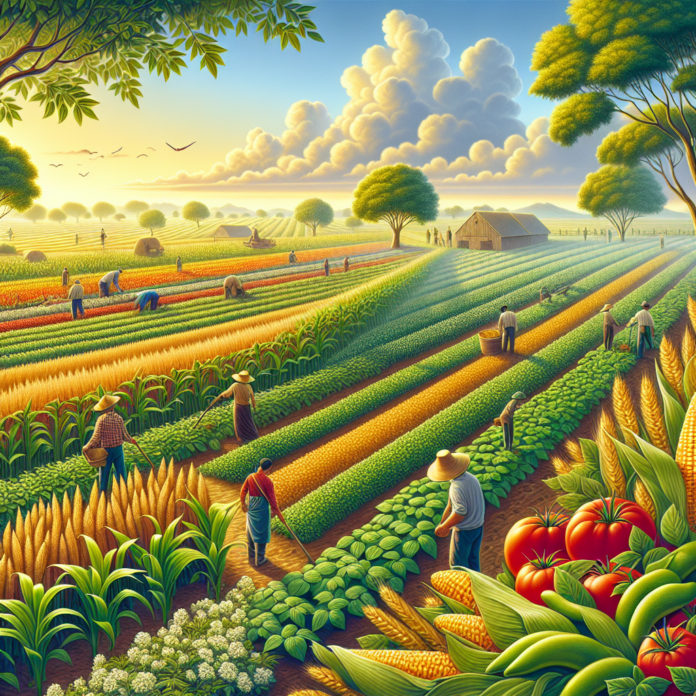Reviving Traditional Varieties for Sustainable Agriculture
“`html
Reviving Traditional Varieties for Sustainable Agriculture
The resurgence of interest in traditional crop varieties is gaining momentum as the agricultural sector seeks sustainable solutions to contemporary challenges. These heirloom varieties, often cultivated for generations, possess unique traits that make them resilient to climate change, pests, and diseases. In contrast to modern hybrids, traditional varieties offer a rich genetic diversity that can be crucial for food security and environmental sustainability.
The Importance of Genetic Diversity
Genetic diversity is vital for the adaptability of crops. Traditional varieties are typically more resilient to environmental stresses such as drought, flooding, and temperature fluctuations. This resilience is essential as climate change continues to impact agricultural systems globally. By integrating these varieties into modern farming practices, farmers can enhance their ability to cope with unpredictable weather patterns and safeguard their yields.
Cultural Significance and Nutritional Benefits
Beyond their agricultural advantages, traditional varieties often have deep cultural significance. They are integral to local cuisines and culinary practices, preserving the heritage and identity of communities. Furthermore, many heirloom crops are nutritionally superior to their commercial counterparts, offering higher levels of vitamins, minerals, and antioxidants. This makes them not only a sustainable choice but also a healthier one for consumers.
Promoting Biodiversity Through Community Involvement
Efforts to revive traditional varieties can also foster community engagement and empower local farmers. Initiatives that promote seed sharing and community seed banks help to preserve these crops while encouraging collaborative efforts among farmers. By working together, communities can enhance their resilience and autonomy, reducing dependence on industrial agriculture and its associated inputs.
Challenges and Opportunities
While the revival of traditional varieties offers numerous benefits, there are challenges to overcome. Market access and consumer awareness are critical factors in promoting these crops. Educating consumers about the advantages of traditional varieties can drive demand and support farmers in transitioning to more sustainable practices. Additionally, policy frameworks need to be in place to protect indigenous seeds and support sustainable farming initiatives.
Conclusion
Reviving traditional varieties is a promising pathway toward sustainable agriculture. By harnessing the resilience and nutritional benefits of these crops, we can work towards a more sustainable food system that honors cultural heritage while addressing the pressing challenges of our time. Collaborative efforts among farmers, consumers, and policymakers will be essential in ensuring the success of these initiatives and the future of agriculture.
“`


